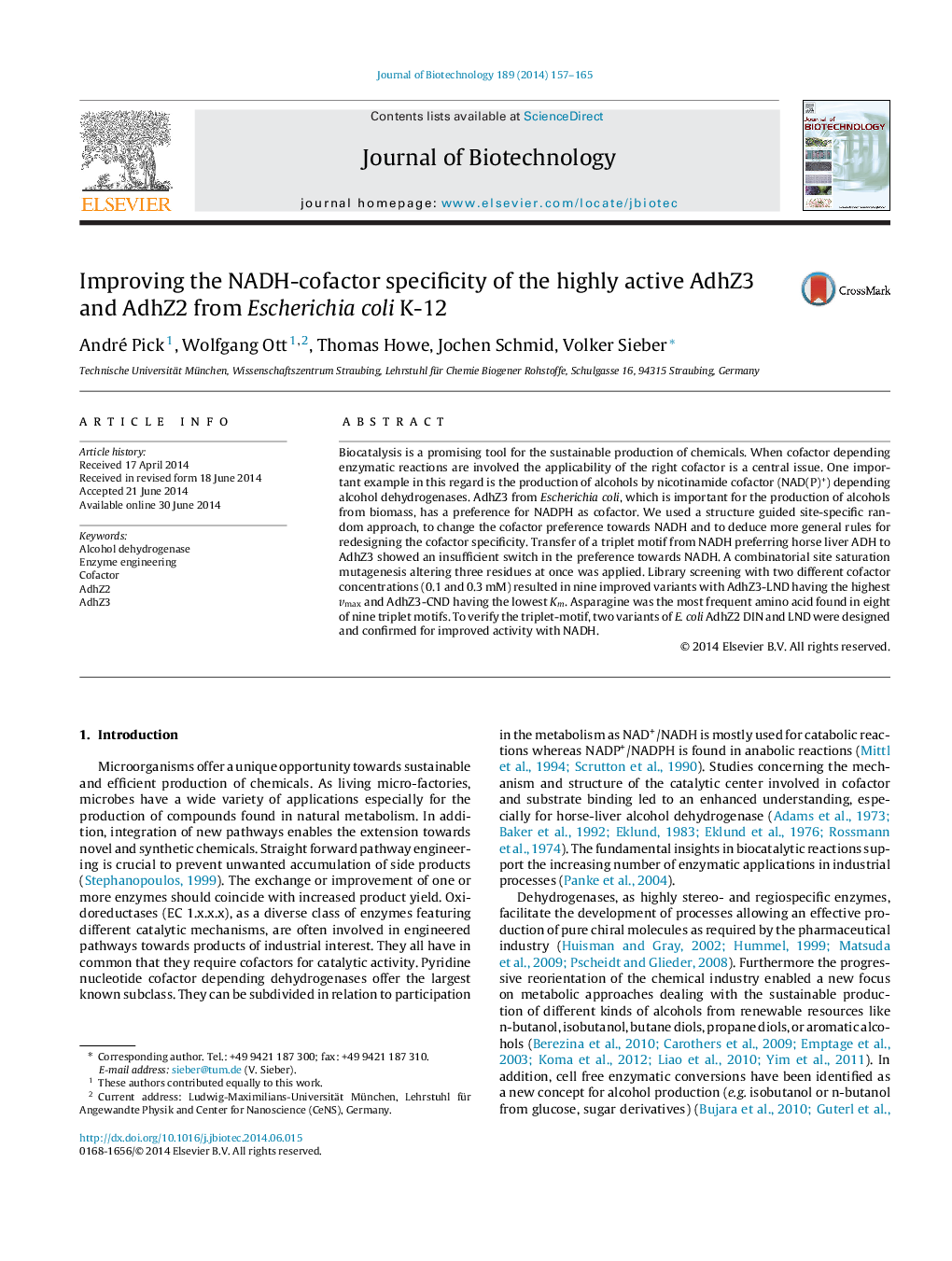| Article ID | Journal | Published Year | Pages | File Type |
|---|---|---|---|---|
| 23067 | Journal of Biotechnology | 2014 | 9 Pages |
•Change of the cofactor dependency for a biotechnology relevant alcohol dehydrogenase AdhZ3.•Iterative approach to identify dehydrogenase variants with an altered cofactor acceptance.•Complete screening of a mutagenesis bank on basis of the nucleotide NDT motif and the randomized change of three amino acids.•Transfer of the insight towards AdhZ2 and confirmation of the improved behavior using NADH as cofactor.
Biocatalysis is a promising tool for the sustainable production of chemicals. When cofactor depending enzymatic reactions are involved the applicability of the right cofactor is a central issue. One important example in this regard is the production of alcohols by nicotinamide cofactor (NAD(P)+) depending alcohol dehydrogenases. AdhZ3 from Escherichia coli, which is important for the production of alcohols from biomass, has a preference for NADPH as cofactor. We used a structure guided site-specific random approach, to change the cofactor preference towards NADH and to deduce more general rules for redesigning the cofactor specificity. Transfer of a triplet motif from NADH preferring horse liver ADH to AdhZ3 showed an insufficient switch in the preference towards NADH. A combinatorial site saturation mutagenesis altering three residues at once was applied. Library screening with two different cofactor concentrations (0.1 and 0.3 mM) resulted in nine improved variants with AdhZ3-LND having the highest vmax and AdhZ3-CND having the lowest Km. Asparagine was the most frequent amino acid found in eight of nine triplet motifs. To verify the triplet-motif, two variants of E. coli AdhZ2 DIN and LND were designed and confirmed for improved activity with NADH.
